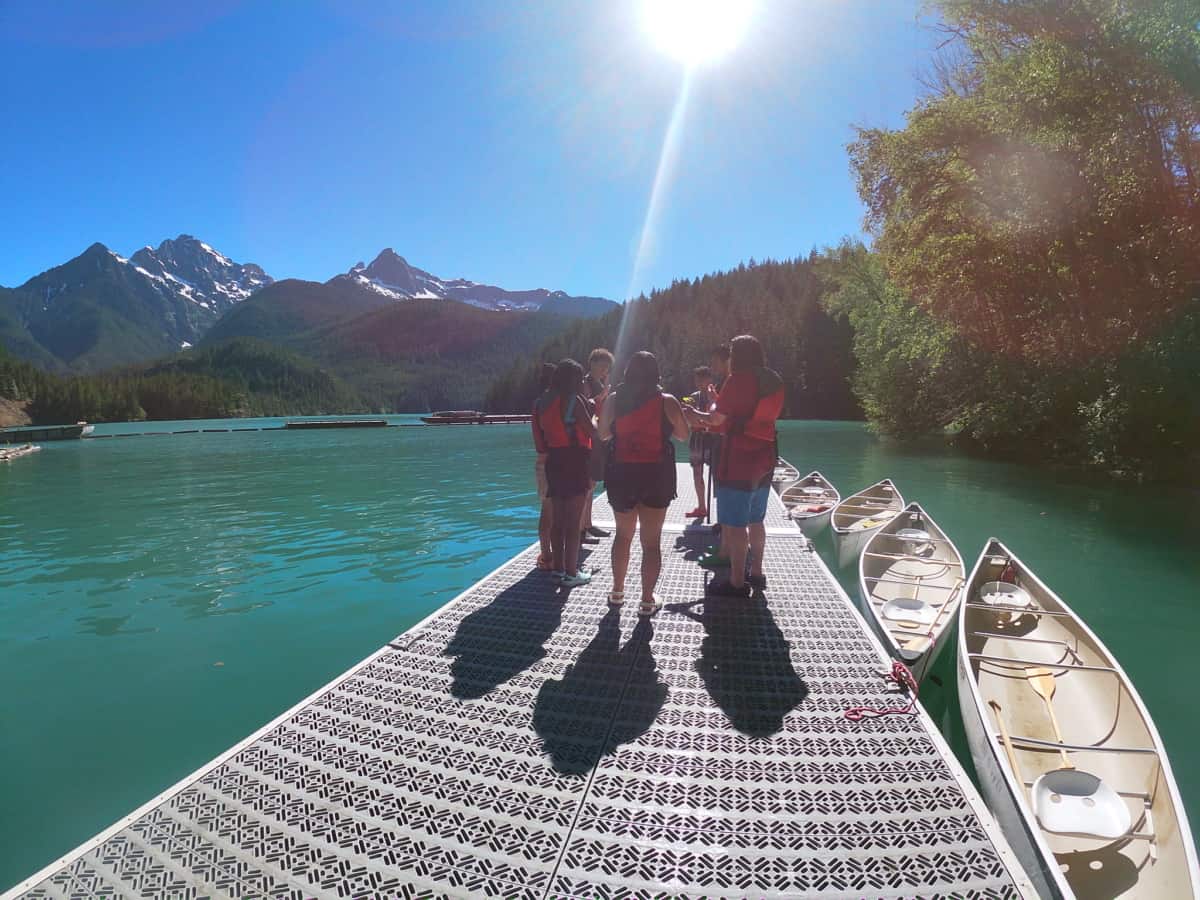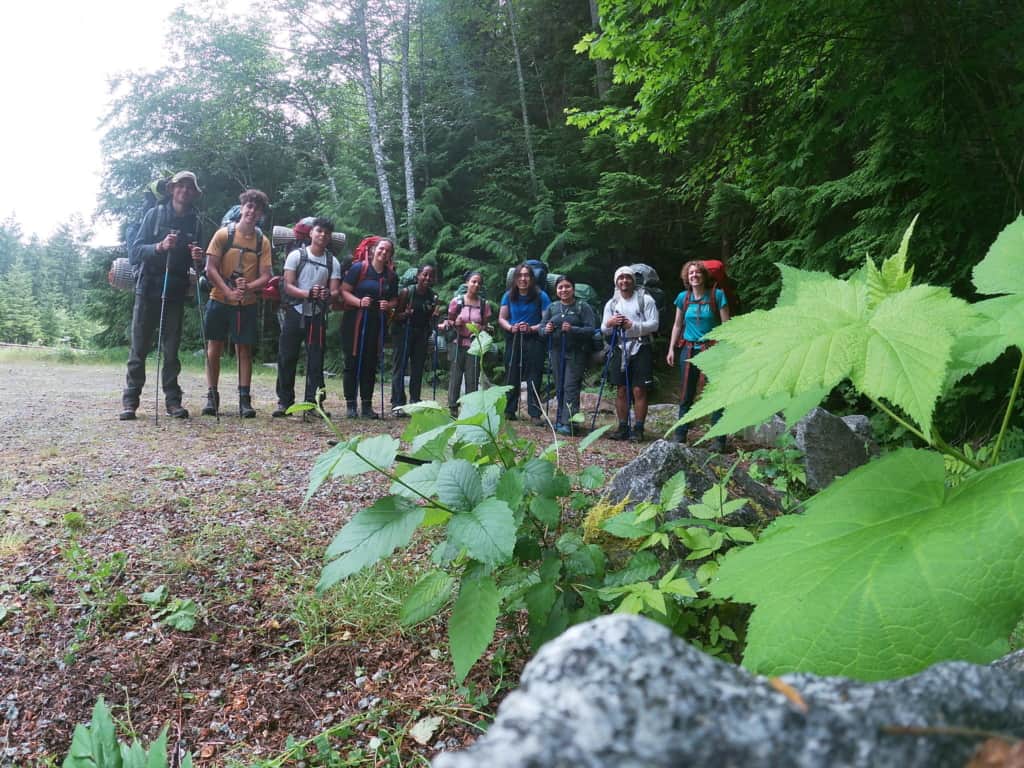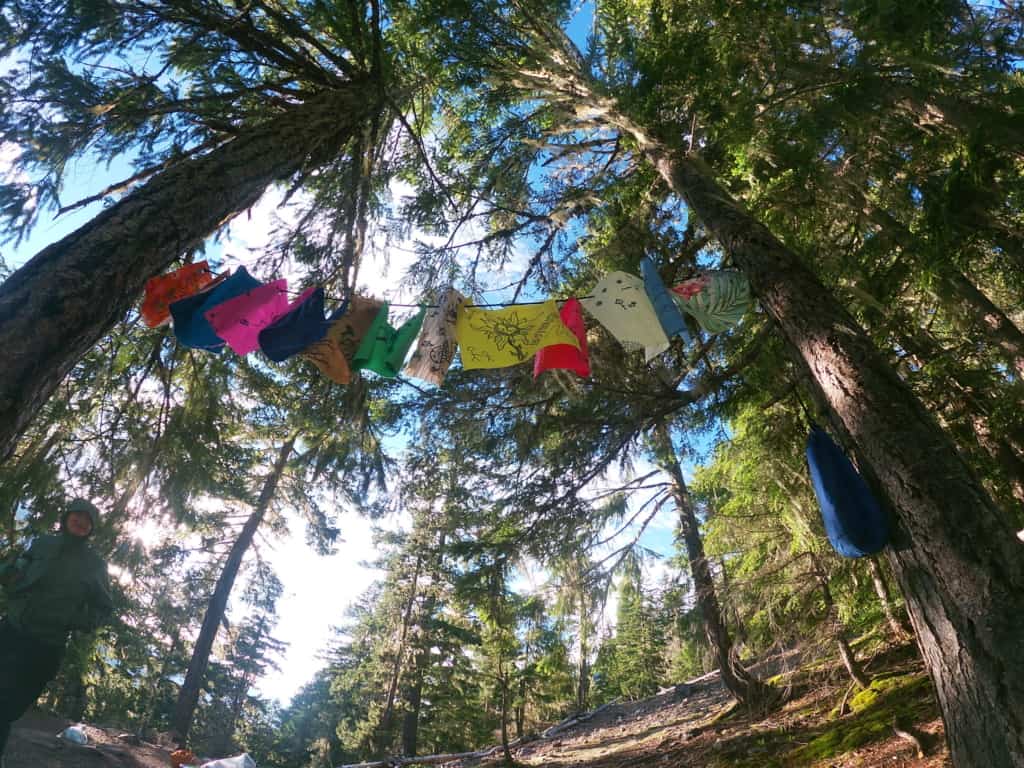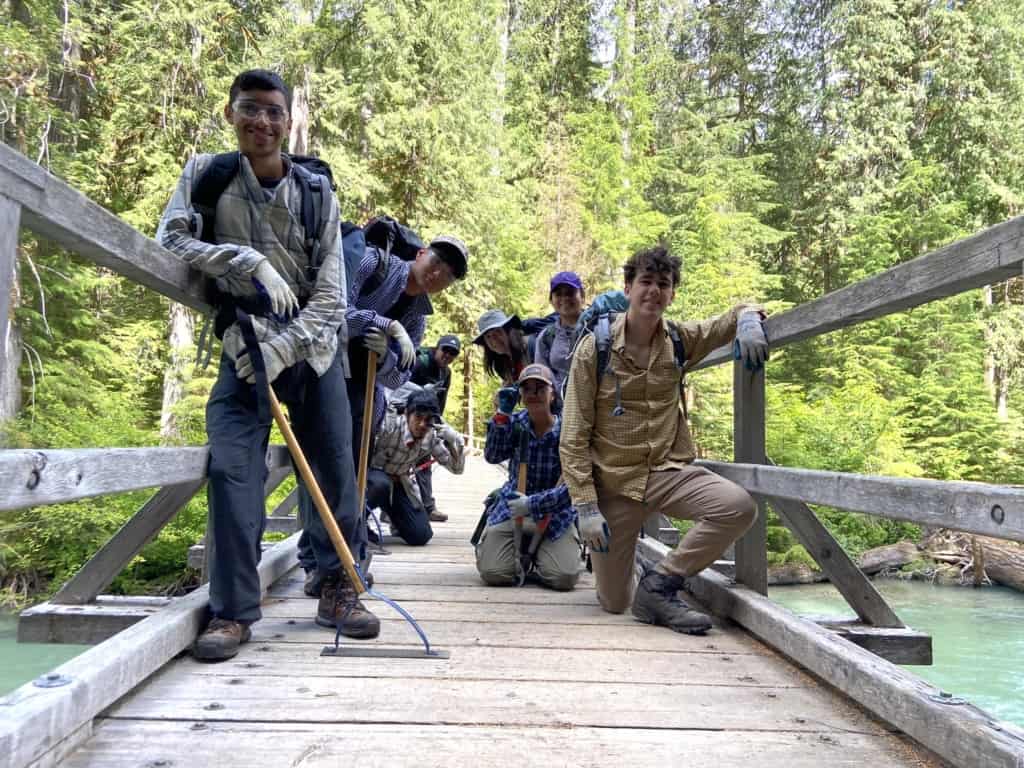
Building Community in Youth Leadership Adventures
North Cascade Institute’s Youth Leadership Adventures (YLA) programs are about many things: outdoor adventure, climate action, leadership opportunity, stewardship, and, most importantly, building community.
In early July, we led the first trip of the season. I took the van, my cup of coffee, and expectations of a van full of enthused yet awkward teenagers to Mount Vernon and Burlington-Edison High Schools, where I picked up students for our upcoming nine-day backpacking and canoeing trip. I was prepared for anything except for what the van ride held – absolute and uninterrupted silence. Never had a group of teenagers been so quiet! I would ask a question, then one brave student would give an obligatory response (much to the relief of all others in the van), and the silence would continue. By the time we reached the National Recreation Area boundary, I settled for finishing our drive with an interpretive roadside tour of the park simply to break the silence.

At the North Cascades Environmental Learning Center, the group filled out with my co-leader and the rest of the students in our group. One of the students later shared his thoughts from this moment in time: What have I done? Who are these people? I am not going to talk to anyone for nine days!
My co-leader and I matched their hesitancy with equal amounts of over-exuberant enthusiasm and one big secret: they would be the last people to believe it now but they were going to be inseparable by the end of the trip.
Despite their quiet start, the group dynamics started to develop quickly. The students began to blossom through helping each other set up tents and an enthusiastic game of “Where is my Water Bottle?” We ended the first night with an evening meeting creating community flags and a community contract that we would strive to uphold throughout our journey together. With this meeting, our group chose its name: Slimy Shrek. The “Shrek” portion of the group name was singular because for the next nine days we would all move together as one.

For nine days, that is exactly what we did. We backpacked together even when three miles started to feel more like seven. We learned, laughed, ate and explored. We completed a service work project brushing approximately a mile worth of tread! We learned to canoe together and swam in the frigid waters of Diablo Lake.
Each night, as my co-leader and I drifted to sleep, we would hear the students murmuring to each other at their tents as they discussed the day, exchanged antics, and shared thoughts about their lives. The students that feared that they would have “nobody to talk to for the whole trip” found themselves struggling to cease their conversations even at the cost of losing sleep in the backcountry!

As the group parted ways on day nine of the trip, we ended our time together by barking progressively louder and louder until we devolved into laughter. This caused a bought of reminiscing on our journey and a few looming questions. How could we even begin to explain to others the journey that this group of ten humans had just embarked on? Who besides each of us could ever come to understand the inside jokes, shared experiences, and bizarre methods of communicating?
How had a group of strangers too intimidated to introduce themselves on Day One become a group of teenagers frantically exchanging contact information and tearing up at the thought of saying goodbye on Day Nine?
This outcome is a big part of the beauty of the Youth Leadership Adventures. Students usually come to the program as strangers, nervous and uncertain. Over the course of their journeys, the groups begin to form their own community for their time in the mountains together. Leaders work diligently to cultivate opportunities for students to share authentic experiences together. Students bond over the sense of challenge and newness the program brings to many of their lives. We offer each other an intentional system of support, joy, and comfort in an unfamiliar setting.
Most importantly, we share memories and experiences that only each other could understand and that required each unique individual in the group to create.
In the words of a student from session two of the Youth Leadership Adventure program, In the beginning we’re strangers, but when we go home, we’ll miss our new family.
Youth Leadership Adventures courses are designed for students who have no prior outdoor experience; all gear, food and transportation are provided, and a generous scholarship program allows us to attract a diverse group of local students for transformative experiences in the backcountry amongst their peers. To learn how you can support a future YLA participant with a student scholarship, visit ncascades.org/support or email jodi_broughton@ncascades.org. Learn more about the program outcomes, student impacts, demographics and more in our 2021 YLA Report.

